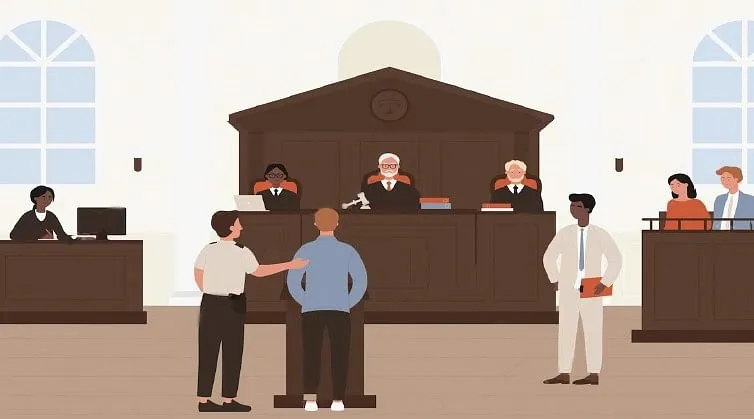In view of soaring pendency of cases, frivolous litigation needs to be discouraged by courts for it has always afflicted the justice delivery system. This kind of litigation, more often than not, ends up into a junk; obviously at the expense of precious time of litigants as well as courts.
With Judiciary battling a huge pendency currently, frivolous litigation must be eliminated absolutely now. The more the frivolous cases, the more difficult the challenge to the justice delivery system.
So, it is for the courts to exercise options for bringing down unwanted litigation which is, by and large, a concomitant factor to the big pendency in courts.
Unequivocally, frivolous litigation could best be equated with the husk that spoils the grain. Time has now come when genuine litigation should not suffer because of frivolous cases.
A pragmatic approach only can strip the courts of this unnecessary burden. Indeed, courts have the authority to purge the litigation from the frivolous ones as the role of a judge is very crucial in identification and catching hold of the frivolous litigation.
Frivolous litigation has proved very fatal to the general litigation in courts. It delays a trial and that is a violation of Article 21of the Constitution in view of the verdict of justice Krishna Iyer in Hussain Ara Khatoon’s case. The noted jurist H M Seervai in his masterpiece, the Constitution of India, has described Khatoon’s case as a landmark judgment.
The pendency of cases in Jammu and Kashmir is no less alarming. The High Court of J&K and Ladakh in its judgments from time to time has underlined the need to discourage frivolous litigation. In certain cases it has imposed exemplary costs.
Legal experts in Kashmir, generally, harbour a view that law should be amended and Civil Procedure Code should have an “express provision” so that if the trial court or the appellate court after appreciation of evidence comes to a conclusion that a case was conducted on flimsy grounds, and the case dragged on for a year or more, should be mandatorily bound to award substantial costs. It is suggested that the costs might extend to Rs 1 lakh and not less than rupees fifteen thousand in the first instance and the costs should be doubled if the party loses the appeal.
It is also suggested that a clause should be added in the Civil Procedure Code so that a civil suit would be decided by the civil courts at the time of recording evidence. The court would fix a calendar of dates on which it would take evidence from the plaintiff or defendant. Besides, another sub-clause, it is suggested, should be added making it obligatory for the trial judge to give reasons why the case could not be decided within one year. In other words after one year the trial in a civil suit should continue only after extension is granted by the High Court not exceeding six months in the first instance.
It is believed that essential amendments in civil law would be a big step for providing social justice to the people. With regard to the Criminal Justice System, the legal experts believe that Criminal Procedure Code also needs to be amended so that under statute a Session’s trial should end within six months unless the High Court extends the time on reasonable cause shown by the trial judge or the prosecution. If the suggestions hold water, then these would shore up a vibrant justice system. These changes in the form of amendments are expected to court appreciation, if carried out in the right direction.
Both Supreme Court of India and High Court of Jammu and Kashmir in several judgments have underlined the need for junking frivolous litigation.
The Supreme Court in Subrata Roy Sahara vs Union of India & Ors has held that “the Indian judicial system is grossly afflicted, with frivolous litigation and ways and means need to be evolved, to deter litigants from their compulsive obsession, towards senseless and ill-considered claims”.
The apex court in Vinod Seth v. Devinder Bajaj has noted that the provision for costs is intended to, among other goals, act as a deterrent to frivolous litigations.
In another judgment, the Supreme Court has underscored that “the justice dispensation machinery in India is plagued with backlogs, with 70% of the pendency before the subordinate courts being on the criminal side.
A significant factor in this backlog, the apex court said, is the vast mass of frivolous litigation instituted year after year by litigants with intent to use the courts of justice for their own mischievous ends.
The Courts have also from time to time adopted various methods to reduce frivolous Public Interest Litigations. In 2010, the Supreme Court laid down the Maintainability of Public Interest Rules which made it compulsory for petitioners to first disclose their credentials and motives to the court’s registry, based on which the plea could be entertained.
With the Supreme Court backing, frivolous litigation may come to an end, provided the stakeholders take it with gravity by exhibiting due concern. For a variety of reasons, the litigants may show proclivity towards frivolous litigation but every such effort needs to be nipped in the bud.
Author is Senior Correspondent, Greater Kashmir
Disclaimer: The views and opinions expressed in this article are the personal opinions of the author.
The facts, analysis, assumptions and perspective appearing in the article do not reflect the views of GK.






